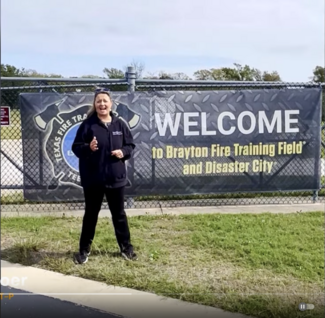EMSA Awards $247 Million Contract, Awaits Decision on Response Times
EMSA's board gave final approval Wednesday to a $247 million contract with a new ambulance provider, sidestepping the issue of whether to increase response times in the Tulsa area.
EMSA's chief financial officer, Kent Torrence, said refusal by Tulsa's City Council to extend response times in city ordinance would cost EMSA $4 million a year in expected savings, or $20 million over the life of the five-year contract. That loss would come only out of EMSA's eastern division because Oklahoma City's council approved the increased response times, he said.
The final contract approved unanimously by the board Wednesday is between EMSA and American Medical Response, based in Greenwood Village, Colo. American Medical Response, known as AMR, operates in 40 states and 2,100 communities, its website states.
EMSA is a government agency that supervises a contractor to provide ambulance service to more than 1 million people in Tulsa, Oklahoma City and surrounding cities. The current contractor, Paramedics Plus, has held the contract since 1998.
The new contract, which begins Nov. 1, gives EMSA two options for response times to the most serious calls in Tulsa: 8 minutes and 59 seconds or 10 minutes and 59 seconds. The shorter response time is currently required by city ordinance, and some councilors have expressed concerns about changing it.
Jim Orbison, EMSA's attorney, said if the council rejects the change, the contract could allow for a maximum response time in Tulsa of 8 minutes and 59 seconds while keeping the longer response time approved in Oklahoma City.
"I don't know that anybody contemplated it being different in each division," Orbison said.
EMSA board member Phil Lakin, a Tulsa city councilor, said the council will have a first reading of the ordinance Oct. 3 and it is scheduled for consideration Oct. 10. Because the response times are defined in city ordinances, they are subject to council approval.
EMSA board member Clay Bird asked whether ambulance transport rates "are going to be increased dramatically" in Tulsa's division if the council rejects the increase.
CEO Steve Williamson said the actual rates for ambulance transport are not specified in the contract and would be increased to account for the higher cost.
During an August meeting, several councilors said they believed the longer response time placed additional burden on Tulsa firefighters, first responders on serious calls.
Dr. Jeff Goodloe, EMSA's medical director, has said the 10-minute-59-second response time was taken from a study of best practices compiled by the University of Oklahoma School of Community Medicine at EMSA's request. The current response time was based on a 30-year-old study that addressed only cardiac patients, he said.
Goodloe said Wednesday he appreciated councilors debating the issue seriously.
"When there is a clinical concern in this system by anybody ... we are going to look into it," he said.
Board member Charles Foulks, a physician, pointed to data showing that on average, EMSA ambulances arrive in 6 minutes and 47 seconds.
"This should allay anybody's fears. ... We are already so far ahead," Foulks said.
Michael Baker, the Tulsa Fire Department's emergency medical services director, has expressed concern about the 12 additional minutes firefighters could be spending at the scene of a nonlife-threatening medical emergency. The new contract calls for doubling the maximum response times to those calls.
Baker has asked for a mechanism to evaluate the impact of the change if response times were increased.
In other business, Williamson announced that EMSA has recently gained national accreditation by the Commission on Accreditation of Ambulance Services. Williamson said out of 16,000 ambulance services nationwide, only about 160 are accredited.
"I'm very proud of this organization. ... We're a member of a very elite group," Williamson said.
EMSA has continued to address issues raised by a critical state audit and review by the city's Management Review Office. Wednesday, board members approved a new meeting attendance policy and creation of a new position: chief operating officer.
The state audit was sparked by a Tulsa World investigation that found EMSA spent public funds on lavish retirement parties, first-class travel and other perks. In response, EMSA has changed many policies and revamped the bills it sends customers.
EMSA response times
Under EMSA's current contract and Tulsa city ordinance, ambulances are required to meet the following response times in Tulsa:
Priority 1 (life-threatening emergency): 8 minutes and 59 seconds
Priority 2 (nonlife-threatening emergency): 12 minutes and 59 seconds
Priority 3 (transport, unscheduled or scheduled less than 24 hours in advance): 60 minutes
Priority 4 (transport scheduled 24 hours or more in advance): 20 minutes
Under a new contract -- if changes are approved by Tulsa's City Council -- ambulances would be required to meet the following response times in Tulsa:
Priority 1: 10 minutes and 59 seconds
Priority 2: 24 minutes and 59 seconds
Priority 3: 59 minutes and 59 seconds
Priority 4: 19 minutes and 59 seconds
Ziva Branstetter 918-581-8306
ziva.branstetter@tulsaworld.com
Copyright 2013 - Tulsa World, Okla.
















